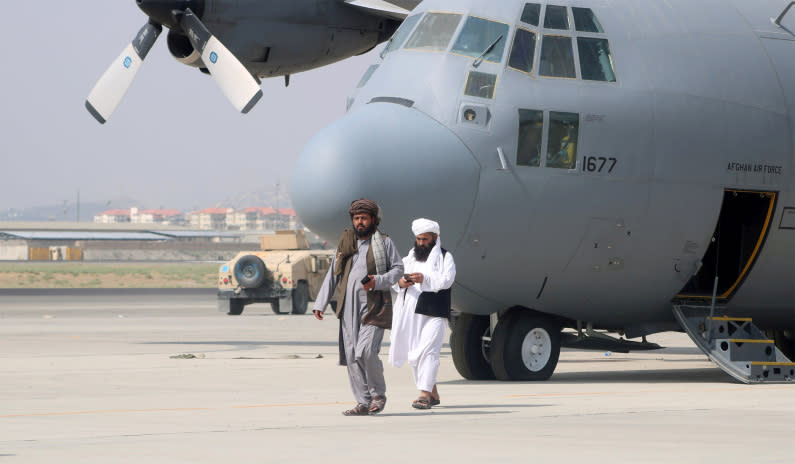Pentagon Press Secretary Excuses Abandonment of Civilians, Military Equipment in Afghanistan

Pentagon press secretary John Kirby is making the rounds — and headlines — on Tuesday’s morning news shows.
On Fox News, Kirby explained away the equipment the U.S. military left in the hands of the Taliban by admitting that “while there’s certainly a lethality component to it, it doesn’t pose a threat to the United States, it doesn’t pose a threat to neighboring nations.” On Monday, America’s 20-year conflict with the Taliban in Afghanistan ended when the last U.S. troops exited the country less than two weeks before the anniversary of September 11, 2001, a day made possible by the Taliban’s sheltering of Osama bin Laden’s Al-Qaeda.
👀 Kirby says it's okay that we left U.S. military assets and weapons behind for the Taliban because they don't "pose a threat to the United States or pose a threat to neighboring nations." #Afghanistan pic.twitter.com/O9fnaQTnSd
— John Cooper (@thejcoop) August 31, 2021
The spoils of war for the victorious Taliban include not only control of the country, but billions of dollars in American military equipment including helicopters, humvees, and other assorted arms that will help the terror group cement that control. A New York Times infographic provides a full breakdown of the materials left behind, although Glenn Kessler of the Washington Post points out that a good portion may not be operational, and its total price tag is not the nearly $85 billion dollars that some have claimed it to be.

Monday saw shocking video of the Taliban operating and hanging Afghans from U.S. helicopters circulate on social media.
While no American troops remain in Afghanistan, an undetermined amount of Americans — Kirby estimates the number to be in the “low hundreds” but provides no context for that estimate — and thousands of Afghan allies of the U.S. military remain in the country.
On MSNBC on Tuesday, Kirby excused the military exit’s prior to a complete civilian evacuation by asserting that “we have Americans that get stranded in countries all the time.” Less than two weeks ago, White House press secretary Jen Psaki chastised a reporter for using the term “stranded,” even deeming it “irresponsible.”
Pentagon Spokesman, today: “We have Americans that get stranded in countries all the time”
Jen Psaki, August 23: "I think it's irresponsible to say Americans are stranded. They are not." pic.twitter.com/syyDJT9P6N
— RNC Research (@RNCResearch) August 31, 2021
President Joe Biden has yet to address the nation on the end of the military conflict, or the plight of those left in Afghanistan. He had previously promised that the military would stay — even past the self-imposed August 31 deadline — if American civilians remained in the country.
STEPHANOPOULOS: “Are you committed to making sure that the troops stay until every American who wants to be out is out?”
BIDEN: “Yes… if there’s American citizens left, we’re going to stay until we get them all out.”
pic.twitter.com/0DIhuPKrbX— Daily Caller (@DailyCaller) August 30, 2021

